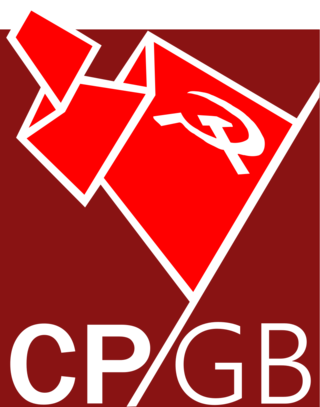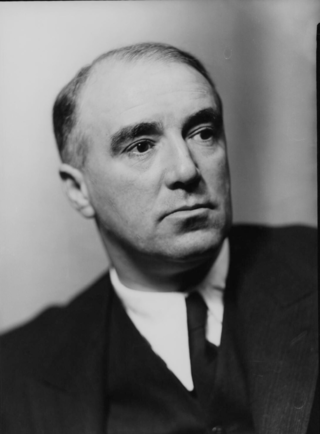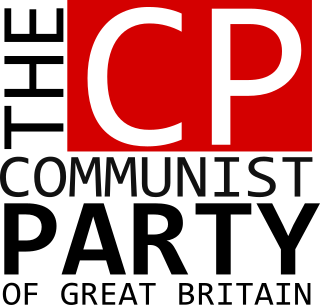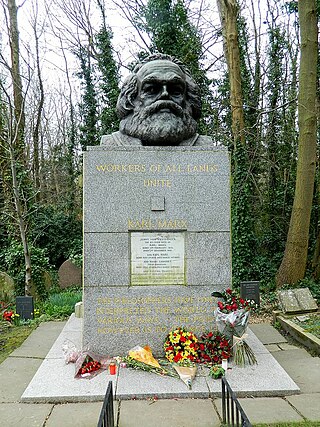The Reasoner
The New Reasoner was preceded by a journal entitled The Reasoner, first published in July 1956 by John Saville and E. P. Thompson. The editors proposed the use of the journal as a forum for the discussion of "questions of fundamental principle, aim, and strategy," critiquing Stalinism as well as the dogmatic politics of the Communist Party of Great Britain (CPGB).
The Reasoner took its name from an early 19th-century publication which had attempted to renew and reinvigorate a flagging Jacobin Radicalism.
Over its five months of existence, the journal angered many within the leadership of the CPGB. Thompson and Saville were ordered to cease publication of their dissident journal, an order they chose to defy. Because of their refusal, Thompson and Saville were suspended from the CPGB.

The Communist Party of Great Britain is a political group which publishes the Weekly Worker newspaper. The CPGB (PCC) claims to have "an internationalist duty to uphold the principle, 'One state, one party'. To the extent that the European Union becomes a state then that necessitates EU-wide trade unions and a Communist Party of the EU". In addition, it is in favour of the unification of the entire working class under a new Communist International. It is not to be confused with the former Communist Party of Great Britain, the Communist Party of Great Britain (Marxist–Leninist), or the current Communist Party of Britain.

Harry Pollitt was a British communist who served as the General Secretary of the Communist Party of Great Britain (CPGB) from July 1929 to September 1939 and again from 1941 until his death in 1960. Pollitt spent most of his life advocating communism. Ideologically a Marxist–Leninist, Pollitt was an adherent particularly of Joseph Stalin even after Stalin's death and disavowal by Nikita Khrushchev. Pollitt's acts included opposition to the Allied intervention in the Russian Civil War and Polish–Soviet War, support for the Spanish Republicans during the Spanish Civil War, both support for and opposition to the war against Nazi Germany, defence of the communist coup in Czechoslovakia, and support for the 1956 Soviet invasion of Hungary.

The New Communist Party of Britain is an anti-revisionist Marxist–Leninist communist party in Britain. The origins of the NCP lie in the Communist Party of Great Britain from which it split in 1977. The organisation takes an anti-revisionist stance on Marxist–Leninism and is opposed to Eurocommunism. After the fall of the Soviet Union the party was one of two original British signatories to the Pyongyang Declaration in 1992. It publishes a newspaper named The New Worker.
The Weekly Worker is a newspaper published by the Communist Party of Great Britain (CPGB-PCC). The paper is known on the left for its polemical articles, and for its close attention to Marxist theory and the politics of other Marxist groups. It claims a weekly online readership averaging over 20,000, Weekly Worker simultaneously also distributes 500 physical copies a week.

The New Left Review is a British bimonthly journal covering world politics, economy, and culture, which was established in 1960.
The Fife Socialist League (FSL) was a minor left-wing political party which existed in Fife, Scotland from 1957 until 1964. It was associated politically with the British New Left and the journal New Reasoner, an antecedent of the present-day New Left Review. From 1960 to 1962, it published a monthly journal called The Socialist.
Straight Left was a left-wing newspaper published from 1979. The phrase was also the generic name given to a political faction of the Communist Party of Great Britain who disagreed with the leadership's emerging Eurocommunist politics, and were responsible for the production of the newspaper. The origins of this faction within the CPGB go back earlier, but it emerged under this name in 1977.

John Saville was a Greek-British Marxist historian, long associated with the University of Hull. He was an influential writer on British labour history in the second half of the twentieth century, and also known for his multi-volume work, the Dictionary of Labour Biography, edited in collaboration with others.
Dona Ruth Anne Torr was a British Marxist historian, and a major influence on the famous Communist Party Historians Group. Aside from her translations of many Marxist classics into English, she is perhaps best known for her unfinished biography of the important labour activist, Tom Mann, Tom Mann and his Times.
Lawrence & Wishart is a British publishing company formerly associated with the Communist Party of Great Britain. It was formed in 1936 through the merger of Martin Lawrence, the Communist Party's press, and Wishart Ltd, a family-owned left-wing and anti-fascist publisher founded by Ernest Wishart, father of the painter Michael Wishart.
Lawrence Daly was a coal miner, trade unionist and political activist.

The Communist Party of Britain (CPB) is a communist party in Great Britain which emerged from a dispute between Eurocommunists and Marxist-Leninists in the Communist Party of Great Britain in 1988. It follows Marxist-Leninist theory and supports what it regards as existing socialist states. The party has fraternal relationships with the ruling parties in Cuba, China, Laos, and Vietnam. It is affiliated nationally to the Cuba Solidarity Campaign and the Venezuela Solidarity Campaign. It is a member of the International Meeting of Communist and Workers' Parties, together with 117 other political parties. After the fall of the Soviet Union, the party was one of two original British signatories to the Pyongyang Declaration.

Eric John Ernest Hobsbawm was a British historian of the rise of industrial capitalism, socialism and nationalism. His best-known works include his tetralogy about what he called the "long 19th century" and the "short 20th century", and an edited volume that introduced the influential idea of "invented traditions". A life-long Marxist, his socio-political convictions influenced the character of his work.
Marxism Today, published between 1957 and 1991, was the theoretical magazine of the Communist Party of Great Britain. The magazine was headquartered in London. It was particularly important during the 1980s under the editorship of Martin Jacques. Through Marxism Today, Jacques is sometimes credited with coining the term "Thatcherism", and believed they were deconstructing the ideology of the government of the-then Prime Minister of the United Kingdom, Margaret Thatcher, through their theory of New Times. It was also a venue for the influential British cultural studies of Stuart Hall.

Edward Palmer Thompson was an English historian, writer, socialist and peace campaigner. He is best known for his historical work on the radical movements in the late 19th and early 20th centuries, in particular The Making of the English Working Class (1963).
The Communist Party Historians' Group (CPHG) was a subdivision of the Communist Party of Great Britain (CPGB) that formed a highly influential cluster of British Marxist historians. The Historians' Group developed social history, which was popularised in the 1960s with "history from below" approach described by E. P. Thompson. During the heyday of the Historians' Group, from 1946 until 1956, notable members included Thompson, Christopher Hill, Eric Hobsbawm, Raphael Samuel, as well as non-academics like A. L. Morton and Brian Pearce. The Historians' Group arose at the University of Cambridge in the 1930s under the encouragement of the economist Maurice Dobb.

The Communist Party of Great Britain (CPGB) was the largest communist organisation in Britain and was founded in 1920 through a merger of several smaller Marxist groups. Many miners joined the CPGB in the 1926 general strike. In 1930, the CPGB founded the Daily Worker. In 1936, members of the party were present at the Battle of Cable Street, helping organise resistance against the British Union of Fascists. In the Spanish Civil War, the CPGB worked with the USSR to create the British Battalion of the International Brigades, which party activist Bill Alexander commanded.
The New Left was a broad political movement that emerged from the counterculture of the 1960s and continued through the 1970s. It consisted of activists in the Western world who, in reaction to the era's liberal establishment, campaigned for freer lifestyles on a broad range of social issues such as feminism, gay rights, drug policy reforms, and gender relations. The New Left differs from the traditional left in that it tended to acknowledge the struggle for various forms of social justice, whereas previous movements prioritized explicitly economic goals. However, many have used the term "New Left" to describe an evolution, continuation, and revitalization of traditional leftist goals.
Proletarian was a journal produced by a small far-left organisation active in the United Kingdom in the 1980s, which is generally also referred to as Proletarian. The organisation was known for its extreme pro-Soviet stance.

Far-left politics in the United Kingdom have existed since at least the 1840s, with the formation of various organisations following ideologies such as Marxism, revolutionary socialism, communism, anarchism and syndicalism.










